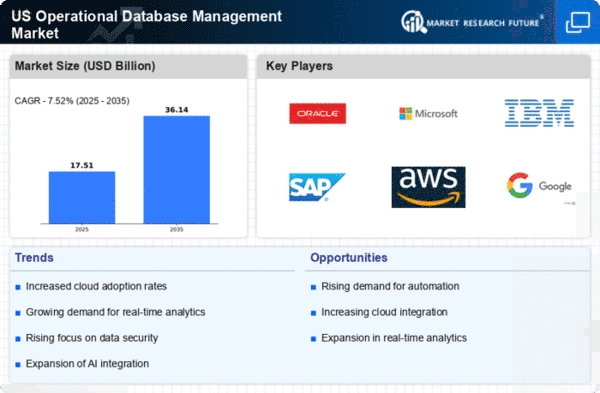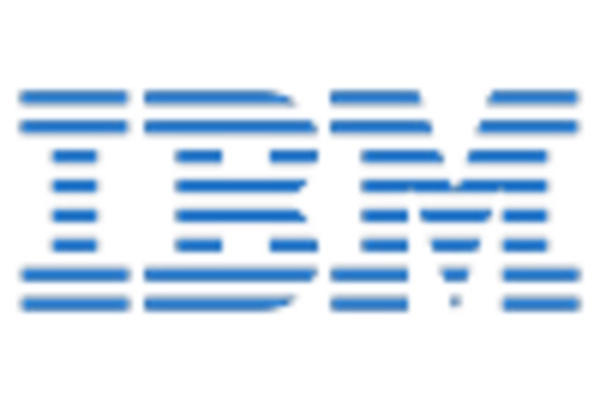Adoption of Advanced Technologies
The operational database-management market is being propelled by the adoption of advanced technologies such as artificial intelligence (AI) and machine learning (ML). These technologies enable organizations to automate data management processes, enhance predictive analytics, and improve overall data quality. In the US, it is estimated that investments in AI-driven database solutions could reach $15 billion by 2026. This technological evolution not only streamlines operations but also allows for more sophisticated data analysis, which is essential for businesses aiming to optimize their performance. Consequently, the operational database-management market is poised for significant expansion as companies integrate these advanced technologies into their data strategies.
Emergence of Hybrid Cloud Solutions
The operational database-management market is witnessing a shift towards hybrid cloud solutions, which combine on-premises infrastructure with cloud capabilities. This approach offers organizations greater flexibility, scalability, and cost-effectiveness in managing their data. In the US, the hybrid cloud market is expected to grow at a CAGR of 22% over the next five years, indicating a strong preference for this model among businesses. By leveraging hybrid cloud solutions, organizations can optimize their database management processes, ensuring that they can adapt to changing demands while maintaining control over their data. This trend is likely to drive further innovation and investment in the operational database-management market.
Growth of E-Commerce and Digital Services
The operational database-management market is benefiting from the rapid growth of e-commerce and digital services. As more businesses transition to online platforms, the demand for efficient database management systems that can support high transaction volumes and provide seamless customer experiences is increasing. In the US, e-commerce sales are projected to surpass $1 trillion by 2025, necessitating scalable and reliable database solutions. This trend underscores the importance of operational database management in facilitating real-time data processing and analytics, which are critical for maintaining competitive advantage in the digital marketplace. Thus, the operational database-management market is likely to thrive as e-commerce continues to expand.
Regulatory Compliance and Data Governance
The operational database-management market is significantly influenced by the increasing emphasis on regulatory compliance and data governance. Organizations are required to adhere to various regulations, such as the General Data Protection Regulation (GDPR) and the Health Insurance Portability and Accountability Act (HIPAA), which mandate stringent data management practices. In the US, the cost of non-compliance can reach millions of dollars, prompting businesses to invest in robust database management solutions that ensure compliance. This focus on governance not only mitigates risks but also enhances data integrity, thereby driving growth in the operational database-management market as companies seek to align their practices with regulatory standards.
Increased Demand for Data-Driven Decision Making
The operational database-management market is experiencing a surge in demand as organizations increasingly rely on data-driven decision-making processes. This trend is fueled by the need for real-time insights that can enhance operational efficiency and strategic planning. According to recent data, approximately 70% of businesses in the US are prioritizing data analytics to inform their decisions. This shift necessitates robust database management solutions that can handle large volumes of data while ensuring quick access and reliability. As companies strive to remain competitive, the operational database-management market is likely to see continued growth, driven by the imperative to leverage data effectively.
















